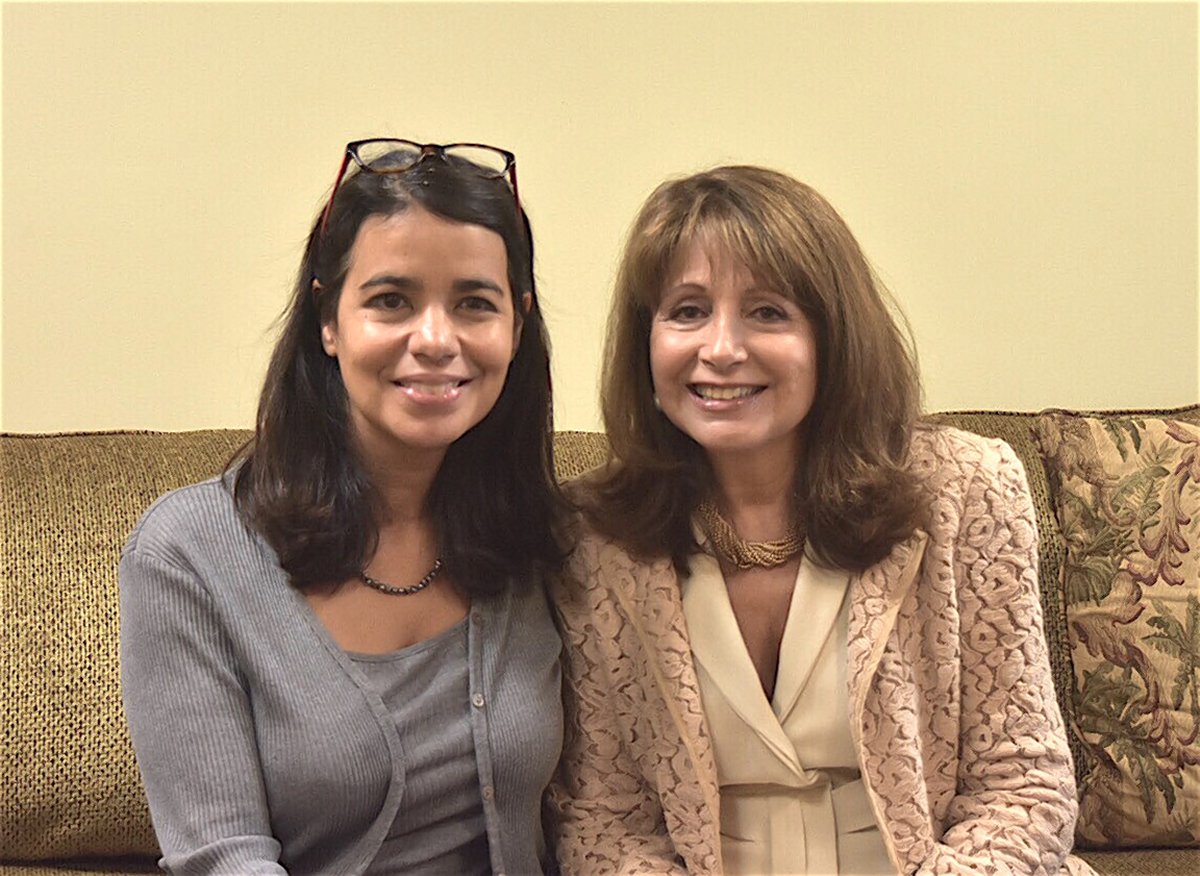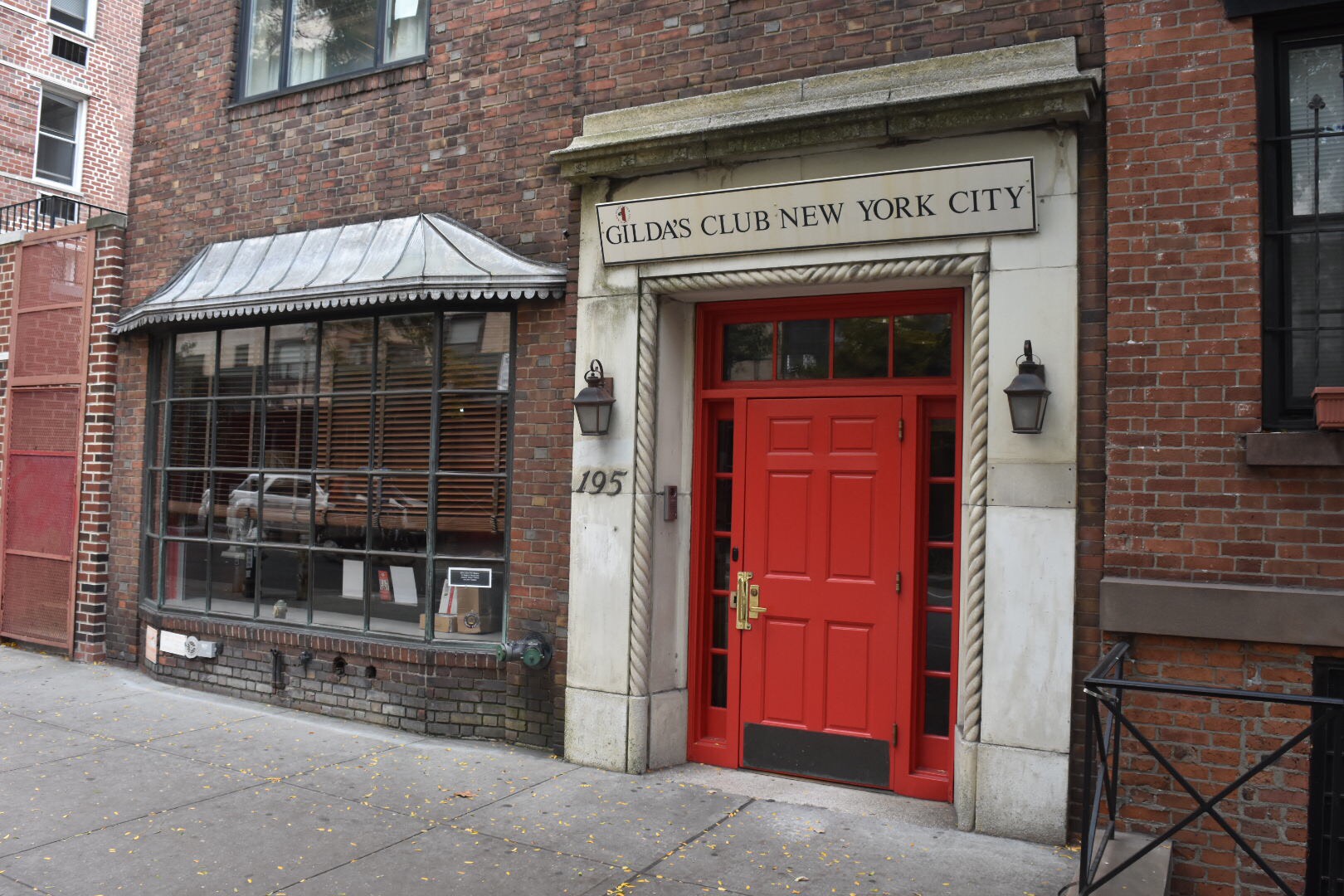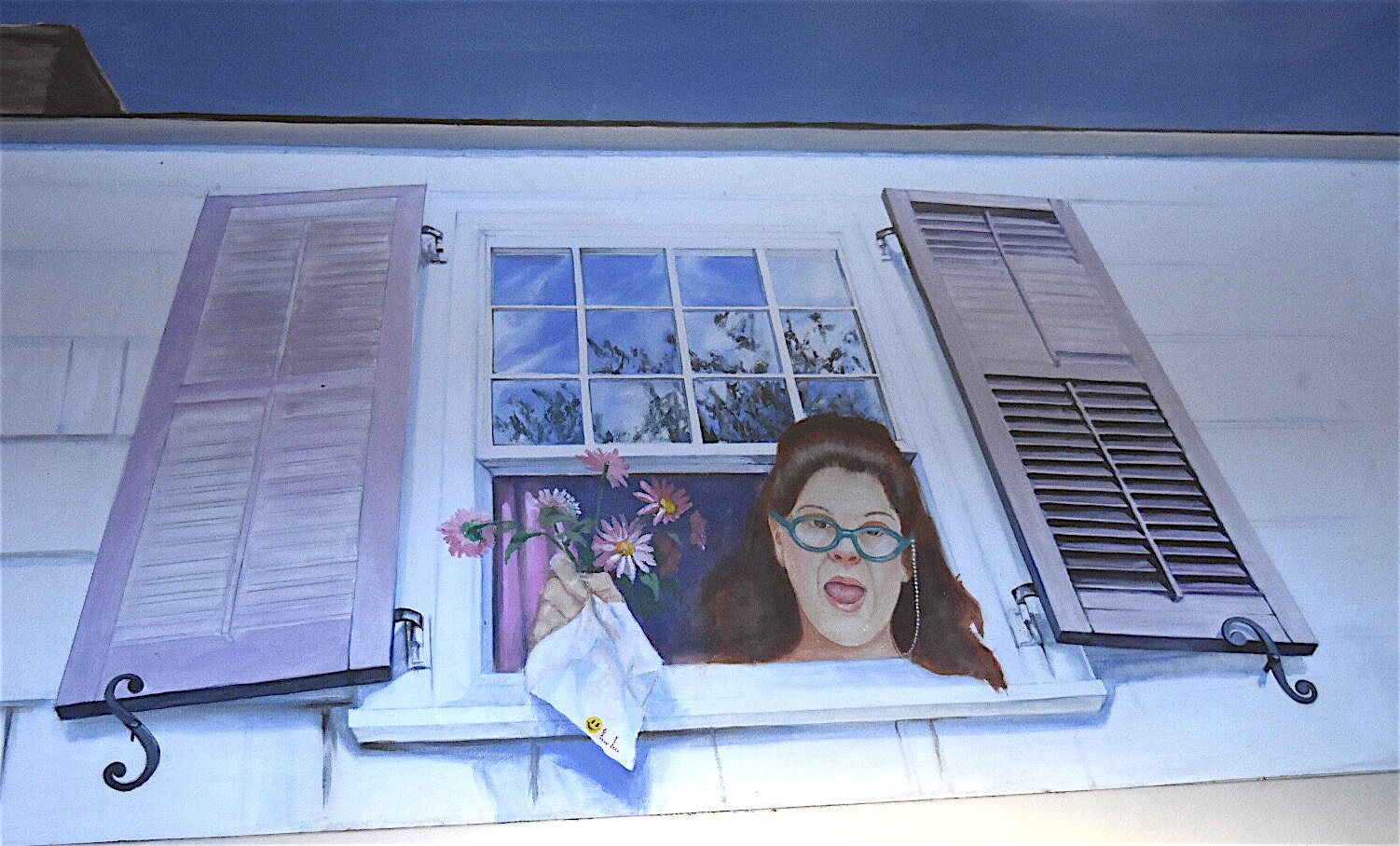
BY LEVAR ALONZO | Their red door is always open.
In observance of Breast Cancer Awareness Month, Gilda’s Club New York City will be focusing its educational programming during October to offer more information to its members on this form of cancer.
Migdalia Torres, executive director of Gilda’s Club New York City, said that the programs are not just open to breast cancer patients and families, but for everyone — from family members, to those who have lost someone, to those diagnosed — because there is some form of knowledge to be gained from this month of programming.
“I like to believe that 50 percent of the people that do come to the club are living with breast cancer,” Torres said. “However, our expansive programming supports anyone living with any type of cancer.
“But, specifically, we do have educational programs this month that are focused on breast cancer in observance of the month.”
The club, at 195 W. Houston St., offers licensed medical health professionals who share wisdom and first-hand experiences and facilitate support groups. There are also groups that are able to meet any requested specific needs.
“Gilda’s Club is a welcoming community of support for cancer patients and their families. It’s for men, women, teens and children,” said Lily Safani, C.E.O. of Gilda’s Club New York City. “We provide educational lectures, support groups, healthy-lifestyle workshops and social activities, which really help to build this community. People come and help each other to understand what it means to be living with cancer.”

Gilda’s Club holds social events throughout the year, and its educational lectures are geared toward providing access to information, including medical, legal and financial and other cancer-specific topics.
Torres said that their goal through their social events is to help people achieve a sense of community.
“Our services are all completely free of charge, which is the most important thing here,” she said. “We don’t take insurances or co-pays. We are open to all people.”
The club is not only for adults. The “Noogieland” program supports kids ages 5 to 12, while the teen program is for youths from ages 13 to 17.
Safani noted that one of the reasons she got into nonprofit healthcare is because she thinks that often the psychosocial part of treatment goes overlooked.
“Many times, we never think about the effects that families have to go through with a person that is fighting a disease,” Safani said. “People don’t have the access or resources to deal with their family who is fighting, and that’s why I’m here.”

Gilda’s Club is part of The Wellness Community, an international organization that provides support for those with cancer and those that care for them. When the two organizations merged, they created the nation’s largest psychosocial cancer support community.
According to Torres, the cancer support community has about 50 offshoots of Gilda’s Club, with affiliates in Canada, Israel and even Japan.
Although the W. Houston St. program has 14 full-time staffers and volunteers that have to keep in contact with about 32,000 members, it also has outreach programs to find new members through hospital outreach, health fairs, schools and basic inquiry calls.
“We definitely try to paint the town red with our information,” Torres said. “We have our brochures, Web site, our Facebook and social media. The fact that what we offer doesn’t reach everyone is what keeps me up at night.”
The club was founded in 1995 in memory of Gilda Radner, one of the original cast members of “Saturday Night Live,” who died in 1989 from ovarian cancer. The W. Houston St. clubhouse was the organization’s first location.
According to the club’s Web site, while on the West Coast, Radner was part of a group that offered psychosocial support for patients and families through love and hope, and gave people a renewed sense of life.
Before she died, Radner expressed that she wished a program like that existed on the East Coast.
“Our mission here is that no one should face cancer alone,” Torres said.
































